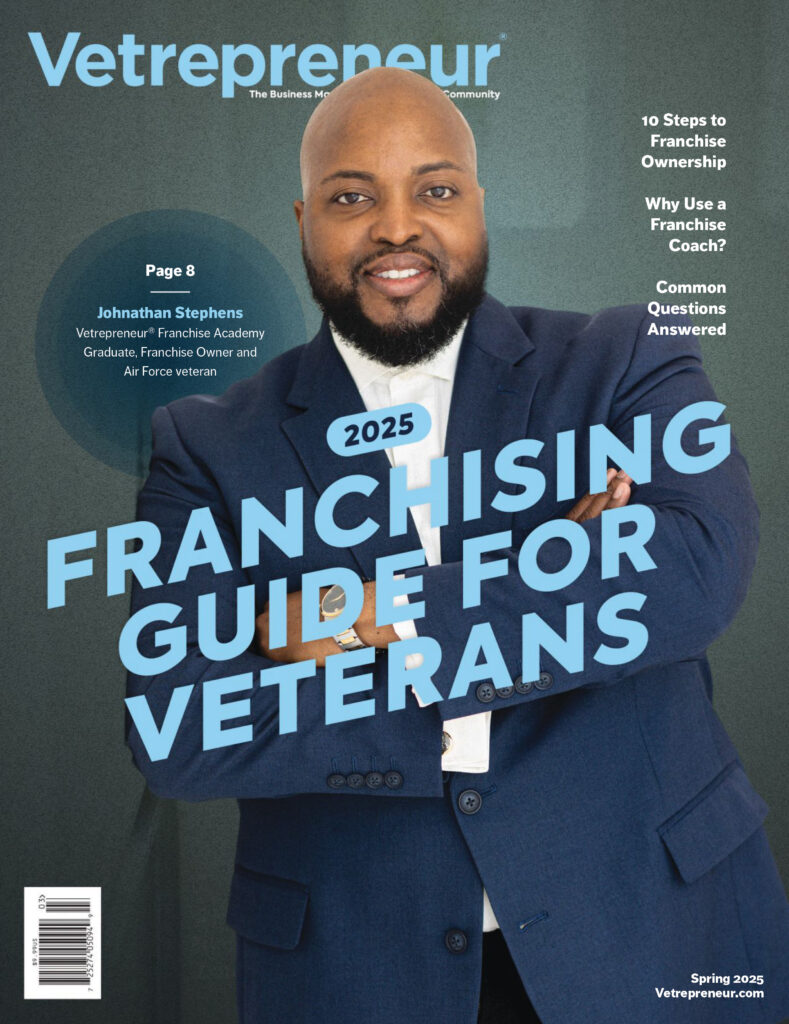Table of Contents
- Credit Score
- Liquid Capital
- Net Worth
- Total Investment Required
- SBA
- Traditional Bank Loans
- Home Equity Loan or Home Equity Line of Credit (HELOC)
- Rollover as Business Startup (ROBS)
- Friends & Family
One of the most common questions we get at the live Vetrepreneur® Franchise Workshops: What’s the best way to fund a franchise? After all, it IS going to require some capital.
First, let’s review the financial requirements for veterans who are considering a franchise.
Credit Score
- 680 minimum
Liquid Capital
Definition: Cash or assets that can be readily converted to cash.
- $20,000 minimum
- $50,000 will provide many more options
Net Worth
Definition: The value of the assets you own, minus the debt you owe.
- $50,000 minimum
- $100,000 will provide many more options
Total Investment Required
- $100,000–$200,000 for most home-based franchises
- $200,000–$400,000 for most brick and mortar franchises
Here are some common funding options:
SBA
The US Small Business Association (SBA) partners with lenders to help increase small business access to loans. The banks lend the money, but the SBA backs the loans for eligible veterans. These loans often have lower interest rates and flexible terms.
Traditional Bank Loans
These often require significant collateral, a strong credit rating and solid business plan.
Home Equity Loan or Home Equity Line of Credit (HELOC)
If you own a home, you may be able to use it as collateral for a traditional home equity loan or a home equity loan line of credit.
Rollover as Business Startup (ROBS)
ROBS allows you to use your retirement savings such as a 401k or TSP—tax free—to start your franchise.
Friends & Family
You may have friends or family members who are in a position to help you start your business.
Read this story and more in the Vetrepreneur® 2025 Franchising Guide for Veterans.







